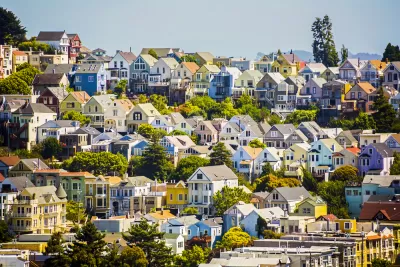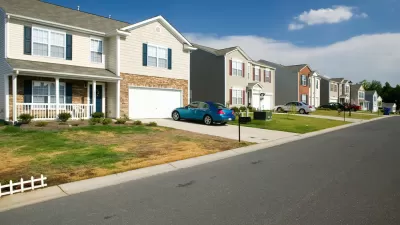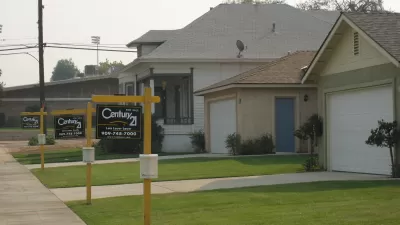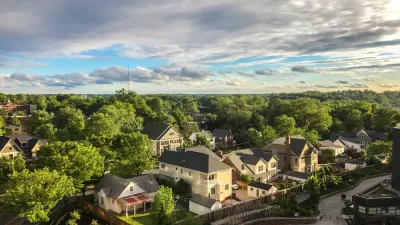The housing prices that define the most expensive metropolitan areas in the country—think San Francisco, New York, and Los Angeles—have gone national.

"[O]ne impact of the pandemic appears to be far more metropolitan areas where the real estate market looks increasingly like San Francisco’s," according to an article by Kellie Hwang for the San Francisco Chronicle [paywall].
Hwang is sharing a recent analysis by the Chronicle that used Zillow data to catalogue the U.S. metropolitan areas experiencing "significant increases in home values and decreasing housing inventory over the pandemic."
"In our data analysis, we narrowed down the list to areas where home values rose 40% or more from Jan. 2020 to Jan. 2022, inventory from the same time period fell by 40% or more, and inventory is now at two homes or fewer per 1,000 people," explains Hwang.
“Two years into the pandemic, the U.S. housing market is virtually unrecognizable from before, with nearly half the number of homes for sale, prices a third higher and rising.” -Zillow spokesperson Tyrone Law
"What we found was a mix of both large and smaller metro areas whose housing markets have become less affordable and scarcer over the past two years."
The list might surprise: Missoula, Montana; Port Angeles, Washington; Provo, Utah; Oak Harbor, Washington; Salt Lake City, Utah; Raleigh, North Carolina; Merced, California; San Diego, California; Bellingham, Washington; and Helena Montana.
FULL STORY: 10 real estate markets on the cusp of a San Francisco-style affordability crisis

Planetizen Federal Action Tracker
A weekly monitor of how Trump’s orders and actions are impacting planners and planning in America.

Maui's Vacation Rental Debate Turns Ugly
Verbal attacks, misinformation campaigns and fistfights plague a high-stakes debate to convert thousands of vacation rentals into long-term housing.

Restaurant Patios Were a Pandemic Win — Why Were They so Hard to Keep?
Social distancing requirements and changes in travel patterns prompted cities to pilot new uses for street and sidewalk space. Then it got complicated.

In California Battle of Housing vs. Environment, Housing Just Won
A new state law significantly limits the power of CEQA, an environmental review law that served as a powerful tool for blocking new development.

Boulder Eliminates Parking Minimums Citywide
Officials estimate the cost of building a single underground parking space at up to $100,000.

Orange County, Florida Adopts Largest US “Sprawl Repair” Code
The ‘Orange Code’ seeks to rectify decades of sprawl-inducing, car-oriented development.
Urban Design for Planners 1: Software Tools
This six-course series explores essential urban design concepts using open source software and equips planners with the tools they need to participate fully in the urban design process.
Planning for Universal Design
Learn the tools for implementing Universal Design in planning regulations.
Heyer Gruel & Associates PA
JM Goldson LLC
Custer County Colorado
City of Camden Redevelopment Agency
City of Astoria
Transportation Research & Education Center (TREC) at Portland State University
Jefferson Parish Government
Camden Redevelopment Agency
City of Claremont





























